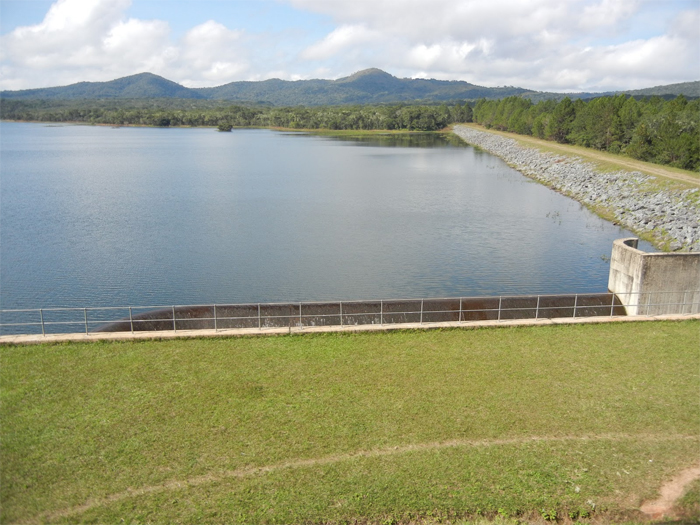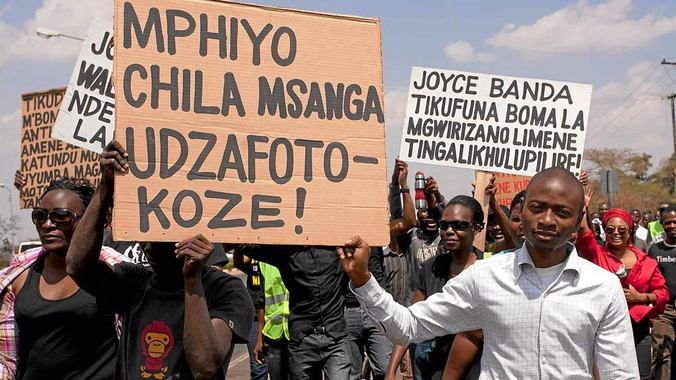Chambo, the most popular fish in Malawi, is becoming harder to find and much more expensive.
“A kilo of Chambo is more expensive than a kilo of beef,” Marriam Banda, a local consumer, told the media at Blantyre market, where Chambo used to be freely available.
“I used to buy Chambo here, but now you rarely find any,” she said. “At Maldeco, you can find some, but it is very expensive.”
Owing to the Chambo scarcity on the market, its wholesale price has risen from 2.5 Malawian kwacha per kilo in the early 1990s to 130 Malawian kwacha per kilo in 2002.
Today, the price has soared to more than 500 Malawian kwacha per kilo.
Chambo – one of nearly 1,000 species of fish in Lake Malawi – cannot be found anywhere else in the world.
But supply can no longer meet demand, with many experts linking the trend to the rapid drop in Lake Malawi’s water levels triggered by population growth, climate change and deforestation.
“Pollution of waters from upland agro-chemicals and a significant rise in water temperatures are partly to blame for the situation,” said Essau Chisale, a senior fisheries researcher.
He attributed the trend to a change in the water environment, which has led to a significant shift in fish breeding patterns.
“There is also a complete change in the lake’s microphatic structures,” said Chisale.
The fisheries department also blames overfishing and non-adherence to sustainable fishing practices for the lake’s dwindling Chambo supply.
“When the lake has been closed for breeding season, some fishermen break the law by fishing,” one official told the media, asking not to be named.
“Some even use mosquito nets to catch the smallest fish,” he said. “Breeding isn’t allowed to take place; this is a man-made problem.”
Recently, cases of fishing in potential breeding grounds; cultivating within the shorelines; dumping refuse in water bodies; and violating environmental regulations have all become rampant, contributing to the rapid deterioration of the lake’s ecosystem.
For example, fishers still harvest immature stocks despite a law requiring them to return to the water any fish less than 15 centimeters in length.
Hard hit
The repercussions of the waning fish supply and poor business can be felt countrywide.
But the hardest hit is the fishing district of Mangochi, which is the heart of Malawi’s fishery sector because of the country’s three major water bodies: Lake Malawi, Lake Malombe and the Shire River.
Over 40,000 inhabitants of the area eke out a living from fishing.
During a visit by an the media team, the town was going through hard times in terms of business activity and production.
“Chambo fish was a popular choice and we did not struggle to find it,” said Abdul Masanga, a 50-year-old fisherman, recalling the heyday of the fishery business.
“Usipa [small tilapia karongae] was not a preferred species for consumption,” he told the media.
“Surely, being choosy about the kind of fish one wants to eat is now history, that I doubt the situation will be reversed soon,” a skeptical Masanga added.
He says Chambo has become hard to find, adding that it had become a delicacy fit only for those who could afford it.
“Fishing is all I know in my life. I do not have any fish to fish anymore,” lamented Lamadi Maole, another local fisherman. “It’s like my life has been taken way.”
He said many local fishermen were seeking jobs in South Africa.
“I am also contemplating moving to South Africa, as I cannot afford to feed my family on the fish business alone,” the 45-year-old fisherman told the media.
Action needed
Atupele Muluzi, the minister of natural resources, energy and mining, stressed the need to “save the Chambo.”
“It’s a battle we [Malawi] cannot afford to lose, as there are so many lives at stake,” he told the media.
Various studies have recommended a multi-sectoral and holistic approach to managing Lake Malawi and surrounding ecosystems to ensure sustainable socio-economic development.
Chisale, the research officer, stressed the need for strict monitoring and surveillance of how the lake and land ecosystems are used by fishers, farmers and communities.
He believes that, if primary users aren’t sensitised to the need to use environmental resources responsibly, it will be difficult to achieve the desired outcome.
“Efforts to ensure responsible fisheries are being advanced through the introduction of [monetary] fines for offenders, rejection of license renewal, and confiscation of illegal gears,” Chisale explained.
Local chief Chimwala, whose area covers the greater part of Lake Malombe, says that unless a holistic approach is taken to combat overfishing, the future of the district’s fisheries will remain bleak.
He said there was a need to provide fishermen with alternative sources of income so that they might give fish a chance to breed.
“Many young men in my area go to South Africa to do menial jobs and raise money for buying fishing equipment, despite the knowledge that fish stocks are dwindling,” he told the media.
“They think fishing is a quick way to make money, hence the chaos in fishery management in the lake,” added Chimwala.
Josiah Chamveka, district fisheries officer for Mangochi, says many members of the community failed to realize that conserving fish resources benefited their own households by ensuring sustained livelihoods.
Daniel Jamu, former head of Malawi’s World Fish Center, says it is possible to rebuild the country’s Chambo stocks, though it could take over a decade.
“It is very important to restock the lake by breeding fish in a hatchery,” he told the media.
Jamu regretted that, in many cases, fishermen had failed to respect demarcations set by authorities to allow breeding.
He believes commercial fish farmers could play a role in helping the government restore the country’s supply of Chambo.
“Chambo demand is high. What commercial farmers produce may have an impact on the market, no matter how small,” he said.
“This may also allow smooth breeding of Chambo in Lake Malawi. If commercial farmers are encouraged and production is high, it may also go a long way to helping lower fish prices,” he added.

.jpeg&w=60&q=100&h=60)




.jpeg&w=60&q=100&h=60)





